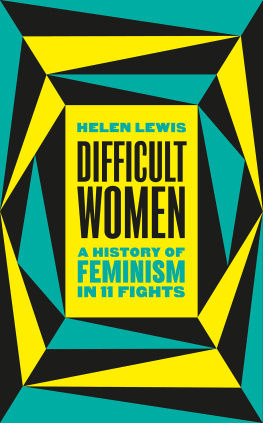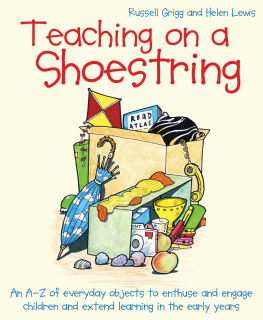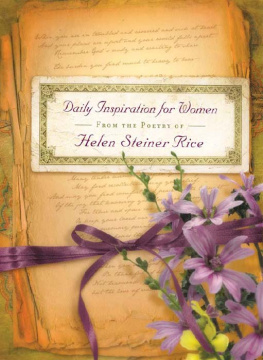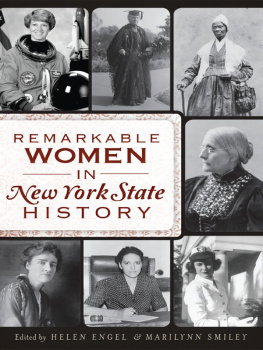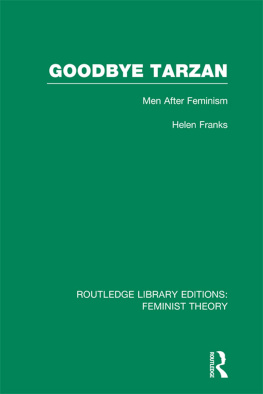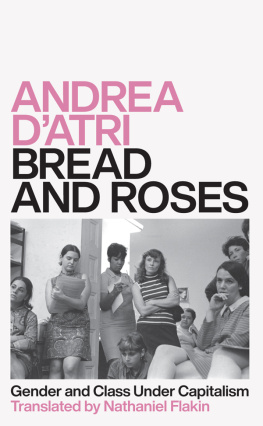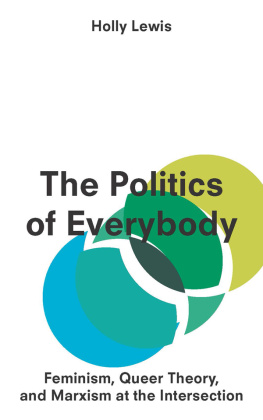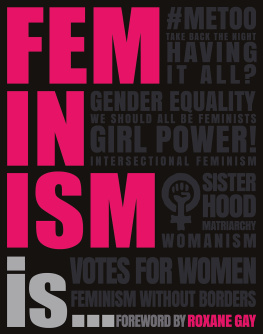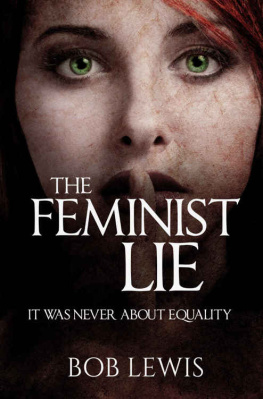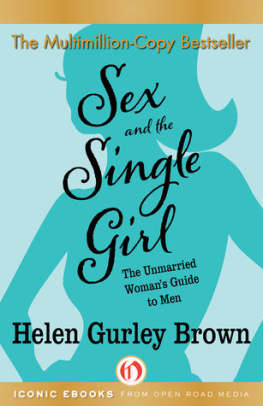Helen Lewis - Difficult Women: A History of Feminism in 11 Fights
Here you can read online Helen Lewis - Difficult Women: A History of Feminism in 11 Fights full text of the book (entire story) in english for free. Download pdf and epub, get meaning, cover and reviews about this ebook. year: 2020, publisher: Random House, genre: Detective and thriller. Description of the work, (preface) as well as reviews are available. Best literature library LitArk.com created for fans of good reading and offers a wide selection of genres:
Romance novel
Science fiction
Adventure
Detective
Science
History
Home and family
Prose
Art
Politics
Computer
Non-fiction
Religion
Business
Children
Humor
Choose a favorite category and find really read worthwhile books. Enjoy immersion in the world of imagination, feel the emotions of the characters or learn something new for yourself, make an fascinating discovery.
- Book:Difficult Women: A History of Feminism in 11 Fights
- Author:
- Publisher:Random House
- Genre:
- Year:2020
- Rating:5 / 5
- Favourites:Add to favourites
- Your mark:
- 100
- 1
- 2
- 3
- 4
- 5
Difficult Women: A History of Feminism in 11 Fights: summary, description and annotation
We offer to read an annotation, description, summary or preface (depends on what the author of the book "Difficult Women: A History of Feminism in 11 Fights" wrote himself). If you haven't found the necessary information about the book — write in the comments, we will try to find it.
Helen Lewis: author's other books
Who wrote Difficult Women: A History of Feminism in 11 Fights? Find out the surname, the name of the author of the book and a list of all author's works by series.
Difficult Women: A History of Feminism in 11 Fights — read online for free the complete book (whole text) full work
Below is the text of the book, divided by pages. System saving the place of the last page read, allows you to conveniently read the book "Difficult Women: A History of Feminism in 11 Fights" online for free, without having to search again every time where you left off. Put a bookmark, and you can go to the page where you finished reading at any time.
Font size:
Interval:
Bookmark:



Helen Lewis is a staff writer at the Atlantic, and a former deputy editor of the New Statesman. She has written for the Guardian, Sunday Times, New York Times and Vogue. She is a regular host of BBC Radio 4s Week in Westminster, a regular panellist on the News Quiz and Saturday Review, and a paper reviewer on The Andrew Marr Show. She was the 2018/19 Women in the Humanities Honorary Writing Fellow at Oxford University.
She tweets at @helenlewis
For all the difficult women,
and Jonathan who lives with one.
The reasonable man adapts himself to the world: the unreasonable one persists in trying to adapt the world to himself. Therefore all progress depends on the unreasonable man.
George Bernard Shaw, 1903
Or woman.
Helen Lewis, 2020
What does it mean to be a difficult woman? Im not talking about being rude, thoughtless, obnoxious or a diva. First of all, difficult means complicated, and this book contains a host of complicated women. A thumbs-up, thumbs-down approach to historical figures is boring and reductive. Most of us are more than one thing; everyone is problematic. In this book, you will meet women with views which are unpalatable to modern feminists. You will meet women with views which were unpalatable to their contemporaries. A history of feminism should not try to sand off the sharp corners of the movements pioneers or write them out of the story entirely, if their sins are deemed too great. It must allow them to be just as flawed just as human as men. Why are girls to be told that they resemble angels, wrote Mary Wollstonecraft, but to sink them below women? We dont have to be perfect to deserve equal rights.
The idea of role models is not necessarily a bad one, but the way they are used in feminism can dilute a radical political movement into feel-good inspiration porn. Holding up a few exceptions is no substitute for questioning the rules themselves, and in our rush to champion historical women, we are distorting the past. Take the wildly successful childrens book Goodnight Stories for Rebel Girls, which has sold more than a million copies. It tells a hundred empowering, moving and inspirational stories, promising that these are true fairy tales for heroines who definitely dont need rescuing. Its entry for the fashion designer Coco Chanel mentions that she wanted to start a business, and a wealthy friend of hers lent her enough money to make her dream come true. It does not mention that Chanel was the lover of a Nazi officer and very probably a spy for Hitlers Germany. In the 1930s, she tried to remove that wealthy friend from the company under racist laws which forbade Jews to own businesses. In the name of inspiring little girls living in a male-dominated world, the book doesnt so much airbrush Coco Chanels story as sandblast it with a high-pressure hose. Do you find Chanels wartime collaboration with the Nazis empowering? I dont although admittedly she does sound like a woman who didnt need rescuing. The real Coco Chanel was clever, prejudiced, talented, cynical and interesting. The pale version of her boiled down to a feminist saint is not.
I can excuse that approach in a childrens book, but its alarming to see the same urge in adults. We cannot celebrate women by stripping politics and therefore conflict from the narrative. Unfurl the bunting, and dont ask too many questions! It creates a story of feminism where all the opponents are either cartoon baddies or mysteriously absent, where no hard compromises have to be made, and internal disagreements disappear. The One True Way is obvious, and all Good People follow it. Feminists are on the right side of history, and we just have to wait for the world to catch up.
Life does not work like that. It would be much easier if feminist triumphs relied on defeating a few bogeymen, but grotesque sexists like Donald Trump only have power because otherwise decent people voted for them. There were women who opposed female suffrage; women are the biggest consumers of magazines and websites which point out other womens physical flaws; there is no gender gap in support for abortion rights. People are complicated, and making progress is complicated too. If modern feminism feels toothless, it is because it has retreated into two modes: empty celebration or shadow-boxing with outright bastards. Neither deals with difficulty, and so neither can make a difference.
Womens history should not be a shallow hunt for heroines. Too often, I see feminists castigating each other for admiring the Pankhursts (autocrats), Andrea Dworkin (too aggressive), Jane Austen (too middle-class), Margaret Atwood (worried about due process in sexual-harassment accusations) and Germaine Greer (where do I start?). I recently read a piece about how I was problematic for having expressed sympathy for the Supreme Court nominee Brett Kavanaugh. My crime was to say that his confirmation hearings had been turned into a media circus and even those accused of sexual assault deserve better. The criticism reflects a desperate desire to pretend that thorny issues are actually straightforward. No more flawed humans struggling inside vast, complicated systems: there are good guys and bad guys, and its easy to tell which is which. This approach is pathetic and childish, and it should be resisted. I want to restore the complexity to feminist pioneers. Their legacies might be contested, they might have made terrible strategic choices and they might have not have lived up to the ideals they preached. But they mattered. Their difficulty is part of the story.
Then theres the second meaning of difficult. Any demand for greater rights faces opponents, and any advance creates a backlash. Changing the world is always difficult. At Dublin Castle in May 2018, waiting for the results of the Irish referendum on abortion law, I saw a banner which read: If there is no struggle, there is no progress. Those words come from a speech by Frederick Douglass, who campaigned for the end of the slave trade in the US. He wanted to make clear that power concedes nothing without a demand. In other words, campaigners have to be disruptive. They cannot take No for an answer. Those who profess to favour freedom and yet deprecate agitation are men who want crops without plowing up the ground, said Douglass. They want rain without thunder and lightning. They want the ocean without the awful roar of its many waters. Changing the world wont make people like you. It will cause you pain. It will be difficult. It will feel like a struggle. You must accept the size of the mountain ahead of you, and start climbing it anyway.
Then there is the difficulty of womanhood itself. In a world built for men, women will always struggle to fit in. We are what Simone de Beauvoir called the second sex. Our bodies are different from the standard (male) human. Our sexual desires have traditionally been depicted as fluid, hard to read, unpredictable. Our life experiences are mysterious and unknowable; our minds are Freuds dark continent. We are imagined to be on the wrong side of a world divided in two. Men are serious, women are silly. Men are rational, women are emotional. Men are strong, women are weak. Men are steadfast, women are fickle. Men are objective, women are subjective. Men are humanity, women are a subset of it. Men want sex and women grant or withhold it. Women are looked at; men do the looking. When we are victims, it is hard to believe us. At the heart of the struggle of feminism to give rape, date rape, marital rape, domestic violence, and workplace sexual harassment legal standing as crimes has been the necessity of making women credible and audible, wrote Rebecca Solnit in
Next pageFont size:
Interval:
Bookmark:
Similar books «Difficult Women: A History of Feminism in 11 Fights»
Look at similar books to Difficult Women: A History of Feminism in 11 Fights. We have selected literature similar in name and meaning in the hope of providing readers with more options to find new, interesting, not yet read works.
Discussion, reviews of the book Difficult Women: A History of Feminism in 11 Fights and just readers' own opinions. Leave your comments, write what you think about the work, its meaning or the main characters. Specify what exactly you liked and what you didn't like, and why you think so.

